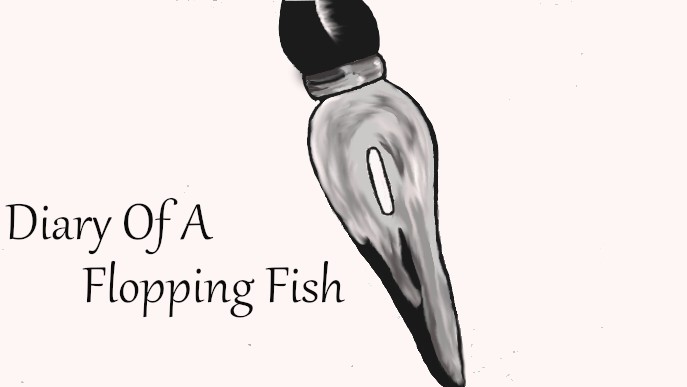Much of the reason why it is so hard for me to write this blog, or do any of the other creative things I enjoy, is that I suffer from Impo ster Syndrome. It doesn’t matter how many English classes I’ve taken, or how much research on the subject I’ve done, I will always feel like a phony. Below I am going to take a look at how this syndrome affects the lives of those who suffer from it, and if there’s any hope to overcome it.
Imposter Syndrome is the feeling that you’re not qualified for your achievements and the worry that you’ll get found out for being a fraud. It’s not a disorder, but a symptom that is experienced as part of many disorders such as anxiety and depression. It is normally associated with high achieving people who have more than enough proof to believe they’re experts in their field/profession.
Initially, Imposter Syndrome was coined Imposter Phenomenon in the 1970s by Pauline Clance and Suzanne Imes. They noticed it affected primarily high achieving women but since has been found to affect all genders and demographics. Around 80% of the population suffers from Imposter Syndrome, but not all of these people are high achievers, either (Salicru, 2022). There are five types of Imposter Syndrome today and each with its characteristics (Beecham, 2022). It seems that how Imposter Syndrome presents depends on what type of events caused it. The cause can also range from a lot of attention and pressure in childhood-to-childhood neglect and trauma (Cuncic, 2021).
The symptoms of Imposter Syndrome are sneaky and because of that, many of us have probably been living with it unawares. Sufferers may experience a need to be perfect which causes them to overachieve and not accept criticism well. On the flip side of that, the sufferer may feel that they aren’t good enough causing them to not pursue tasks and develop skills. Even perfectionists may struggle with low self-esteem, but they respond by going over the requirements needed for a task (Cuncic, 2021). The core feelings of not belonging and feeling unqualified can lead a person down a road of underachievement and stress for many different reasons. A person experiencing chronic Imposter Syndrome would tend to not try things because they were afraid of failing which would lead to not achieving your potential. A perfectionist mentality can also lead to overworking yourself and ruining your relationships because of it.
Though so much of the population has experienced this syndrome at some point, there is still no universally accepted treatment available specifically for it (Silucru, 2022). Imposter Syndrome is typically indicative of an underlying mental disorder and seems to be treated with the disorder. Sebastian Silicru, a registered psychologist, recently published a study in The American Journal of Applied Psychology (Salicru, 2022) on a new method of treatment. It involves integrating Immunity to Change and Schema therapy. The study and article published by Psychology Today are great reads, but in short, it operates on the ideas of examining and deconstructing the behavior that one desires to change. Our struggles with Imposter Syndrome begin with how our reality is formed. A schema is a rule of reality that we create to understand and process information. In the case of Imposter Syndrome, the schema could be that we can’t do anything right. The reason we believe this would go back to something that happened during childhood. How this schema is expressed relies solely on the personality of the person.
Though there is not currently a super cure to get over Imposter Syndrome, there are a lot of different strategies to cope with it. Taking a break, or limiting your social media time (for at least a while) may be the first strategy that anyone can try. Social media gives us curated glimpses into the lives of those close to us and aids in those feelings of inadequacy. We need to remember that these views are curated. When our best friends put up a picture of them and their significant other looking happy, they don’t tell Facebook about the fight they just had. We may see that someone got a new job with all the frills, but that doesn’t make our accomplishments suddenly invalid. While limiting your time on social media, also start giving yourself credit for what you have accomplished, since this is the most telling symptom of Impostor Syndrome and the first step to pulling yourself out of the funk you made.
In conclusion, please take a moment to evaluate yourself honestly. It is possible that you, like 80% of the population, have a form of imposter syndrome. It is not a disorder, but a phenomenon that we experience due to flawed thinking created by low self-esteem. There is always hope to change your thinking and new information may always be on the rise. Please take a moment to check out all of the wonderful resources at the bottom which will give you a more in-depth look at Imposter Syndrome.
References:
Silucru, Sebastian (January 26, 2022). A New Way to Address Impostor Syndrome | Psychology Today www.psychologytoday.com https://www.psychologytoday.com/us/blog/psychology-insights-new-world/202201/new-way-address-impostor-syndrome
Sebastian Silucru. A New Model to Treat Impostor Syndrome and Associated Conditions. American Journal of Applied Psychology. Vol. 11, No. 1, 2022, pp. 17-27. doi: 10.11648/j.ajap.20221101.13
Muradoglu M.A., Melis (October 27, 2021). Why So Many People Feel Like Impostors | Psychology Today www.psychologytoday.com https://www.psychologytoday.com/us/blog/how-we-think-about-success/202110/why-so-many-people-feel-impostors
Beecham, Amy (March 25, 2022). What are the 5 types of imposter syndrome and what do they mean for you? – medicine world council www.Medicineworldcouncil.com https://medicineworldcouncil.com/health-news/what-are-the-5-types-of-imposter-syndrome-and-what-do-they-mean-for-youCuncic, Arlin. Imposter Syndrome: Definition, Symptoms, Traits, Causes, and Coping (November 23, 2021). www.verywellmind.com https://www.verywellmind.com/imposter-syndrome-and-social-anxiety-disorder-4156469


Leave a comment